The Bach-Werke-Verzeichnis is a catalogue of compositions by Johann Sebastian Bach. It was first published in 1950, edited by Wolfgang Schmieder. The catalogue's second edition appeared in 1990. An abbreviated version of that second edition, known as BWV2a, was published in 1998.

Johann Ludwig Bach was a German composer and violinist.
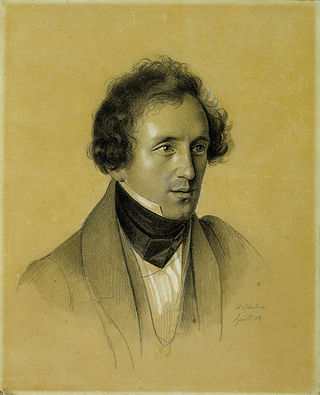
St. Paul, Op. 36, is an oratorio by Felix Mendelssohn. The composer oversaw versions and performances in both German and English within months of completing the music in early 1836.
Chorale fantasia is a type of large composition based on a chorale melody, both works for organ, and vocal settings, for example the opening movements of Bach's chorale cantatas, with the chorale melody as a cantus firmus.
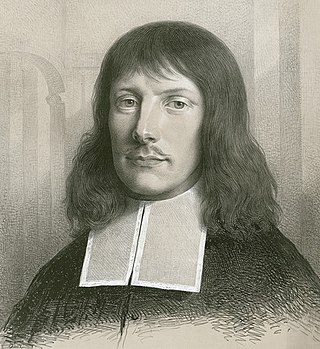
Herr Gott, Beherrscher aller Dinge, BWV 120.2, is a wedding cantata by Johann Sebastian Bach. He composed and first performed it in Leipzig, most likely in 1729.
"Nun lob, mein Seel, den Herren" is a Lutheran hymn written in German by the theologian and reformer Johann Gramann in 1525. It was published in 1540 and appears in 47 hymnals. A translation by Catherine Winkworth, "My Soul, now Praise thy Maker!", was published in 1863.

Unser lieben Frauen Traum Op. 138, No. 4, is a sacred motet for unaccompanied mixed choir by Max Reger. The German text is a poem by an anonymous poet, derived from a Volkslied. The piece is in F major and scored for up to six voices, SSATBB. Composed in Meiningen in 1914, it was published in 1916 after Reger's death as the fourth of Acht geistliche Gesänge. It is often performed in Advent.

Der Mensch lebt und bestehet, Op. 138, No. 1, is a sacred motet for unaccompanied mixed choir by Max Reger. The German text is a poem by Matthias Claudius, beginning with "Der Mensch lebt und bestehet nur eine kleine Zeit". The piece is in A minor and scored for eight voices in two choirs SATB. Composed in Meiningen in 1914, it was published in 1916 after Reger's death as the first of Acht geistliche Gesänge.
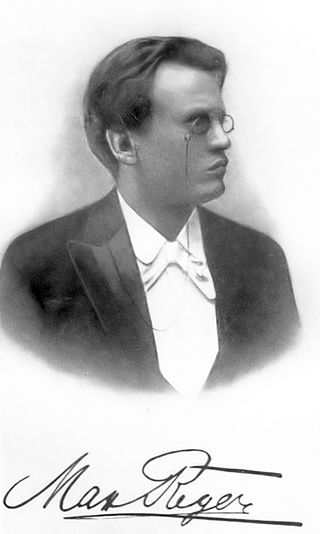
Three chorale fantasias, Op. 52, are chorale fantasias for organ by Max Reger. He composed the fantasias on three chorales in September 1900: Phantasie über den Choral "Alle Menschen müssen sterben", Phantasie über den Choral "Wachet auf, ruft uns die Stimme" and Phantasie über den Choral "Halleluja! Gott zu loben bleibe meine Seelenfreud". They were all first performed individually by Reger's friend Karl Straube, and were first published by Breitkopf & Härtel.

Ein' feste Burg ist unser Gott, Op. 27, is a chorale fantasia for organ by Max Reger. He composed it in 1898 on Luther's hymn "Ein feste Burg ist unser Gott". The full title is Phantasie über den Choral "Ein' feste Burg ist unser Gott".
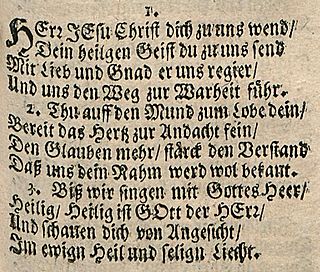
"Herr Jesu Christ, dich zu uns wend" is a Lutheran hymn from the 17th century. Its hymn tune, Zahn No. 624, was adopted in several compositions. It was translated into English and is part of modern hymnals, both Protestant and Catholic.

52 chorale preludes, Op. 67, is a collection of 52 settings of popular Protestant hymns for organ by Max Reger, composed between 1900 and 1902. Originally published in three volumes between 1900 and 1903 with the cover title "52 Choralvorspiele für Orgel", the full title of the collection was "Zweiundfünfzig leicht ausführbare Vorspiele zu den gebräuchlichsten evangelischen Chorälen".

"Allein Gott in der Höh sei Ehr" is an early Lutheran hymn, with text and melody attributed to Nikolaus Decius. With the reformers intending church service in German, it was intended as a German version of the Gloria part of the Latin mass, used in almost every service. Decius wrote three stanzas, probably in 1523, while a fourth was added, probably by Joachim Slüter.

"Was mein Gott will, das g'scheh allzeit" is a Lutheran hymn in German. The text from c. 1550 is attributed to Albert, Duke of Prussia. The melody, Zahn No. 7568, goes back to a tune by Claudin de Sermisy, written in 1529 for a secular French song. The hymn has belonged to core Lutheran hymnody without interruption and is part of the Protestant hymnal Evangelisches Gesangbuch as EG 364.

"Macht hoch die Tür" is a German popular Advent hymn, written in Ducal Prussia in the 17th century. The lyrics were written by Georg Weissel in 1623, for the inauguration of the Altroßgärter Kirche in Königsberg. The melody that is now associated with the text appeared first in 1704 in the hymnal by Johann Anastasius Freylinghausen.
Johannes Weyrauch was a German composer and cantor.
Martin Karl Woldemar Hasse was a German university lecturer, composer and music writer.
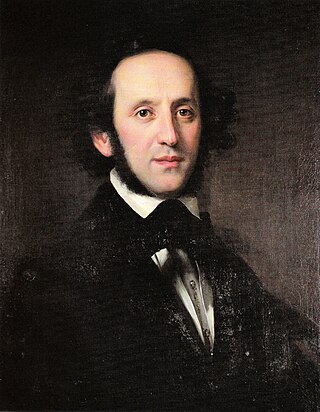
Die Deutsche Liturgie, MWV B 57, is a collection of musical settings of the ten sung elements in the Protestant liturgy, composed by Felix Mendelssohn for double choir a cappella. He wrote it in 1846 for the Berlin Cathedral, on a request by the emperor, Friedrich Wilhelm IV of Prussia. It was published by Breitkopf & Härtel in 1875 in the complete edition of the composer's works.











